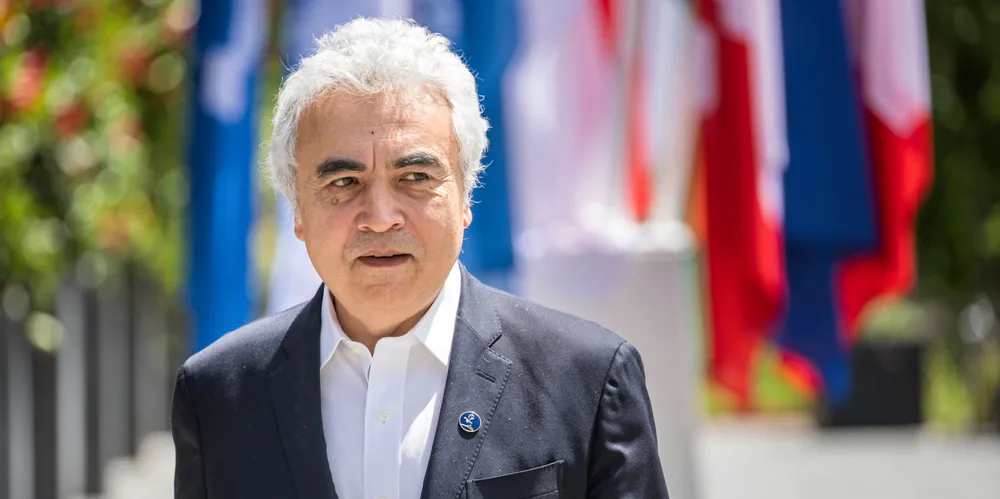'First truly global energy crisis' | Irena and IEA demand more international collaboration to reach net zero
Agencies present first annual 'Breakthrough Agenda Report' with recommendations on how to push down price of clean power, EVs, low-carbon steel and hydrogen

An international ‘collaboration gap’ threatens to undermine climate progress and delay net zero, the International Renewable Energy Agency (Irena), the International Energy Agency (IEA) and the UN Climate Change High-Level Champions have warned in a new report.
“We are in the midst of the first truly global energy crisis, with devastating knock-on consequences across the world economy, especially in developing countries. Only by speeding up the transition to clean sustainable energy can we achieve lasting energy security,’’ said IEA executive director Fatih Birol.
“Through international collaboration, we can make the transition quicker, cheaper and easier for everyone - on the back of faster innovation, greater economies of scale, bigger incentives to invest, level playing fields and benefits that are shared across all parts of society.
“Without this collaboration, the transition to net zero emissions will be much more challenging and could be delayed by decades.”
The report has been presented ahead of the US-hosted Global Clean Energy Action Forum in Pittsburg this week, and sets out 25 collaborative actions to help make clean power, electric vehicles, low-carbon steel and hydrogen, as well as sustainable farming the most affordable options as soon as possible.
The Breakthrough Agenda has the goal to drive down costs in power, road transport, steel hydrogen and agriculture, five sectors that account for almost 60% of global greenhouse gas emissions today.
“The energy and climate crisis has exposed the weaknesses and vulnerabilities of a system heavily reliant on fuels of the 20th century. Anything short of radical and immediate action will ultimately eliminate the chance of staying on the 1.5°C path,” said Irena director-general Francesco La Camera.
“The Breakthrough Agenda and our joint report sends a strong signal ahead of COP27 that greater international collaboration can amplify ambition and accelerate progress.”
<b>The report makes 25 recommendations to discuss at the Global Clean Energy Action Forum. These include:</b>
Demonstrate and test flexible low-carbon power systems to expand the range of solutions and increase the share of variable renewables
Create new cross-border supergrids this decade to increase trade in low-carbon power, reduce emissions, improve energy security and enhance system flexibility
Set up new international centres of expertise to channel finance and technical assistance to help coal-producing countries’ transition
Agree on a common definition and target dates by which all new road vehicles will be net zero, targeting 2035 for cars and vans and the 2040s for heavy duty vehicles
Mobilise investment in charging infrastructure, including prioritised assistance for developing countries and harmonise international charging standards to drive investment and accelerate adoption globally
Government policies and private-sector purchase commitments to drive demand and deployment of low-carbon and renewable hydrogen alongside standards to enable global trade
Public and private commitments to purchase near-zero emission steel, and actions to level the playing field between steel producing nations
Research from the IEA shows that without international collaboration, the transition to net-zero could be delayed by decades, while new research cited by the report shows that some technology costs may decline by as much as 18% by 2030.
Irena also estimates that an energy transition aligned with limiting global temperature increase to 1.5°C could create close to 85m additional jobs by 2030 compared to 2019.
(Copyright)